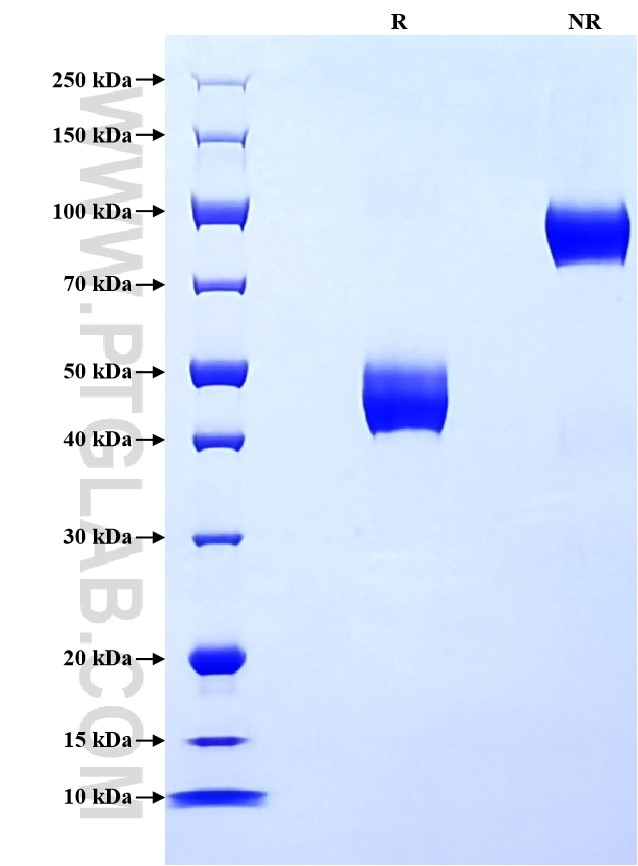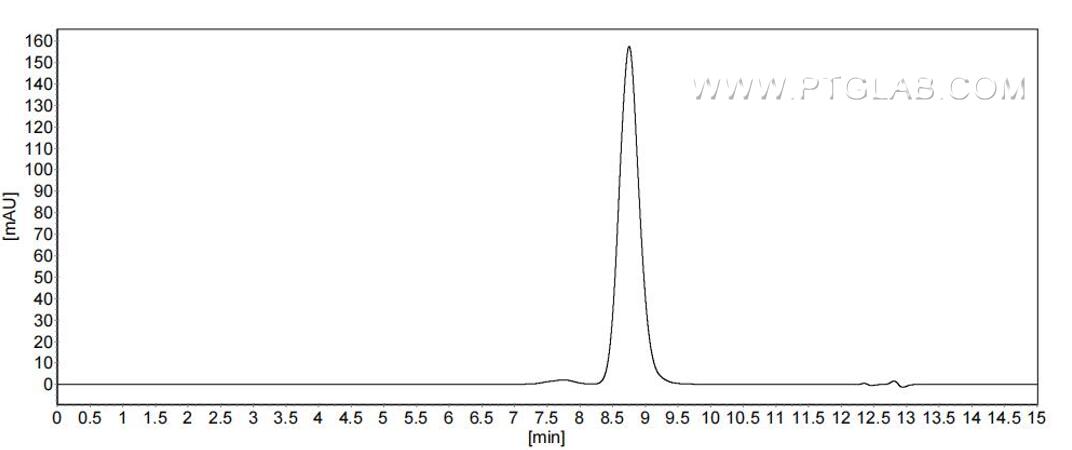Recombinant Human CD69 protein (rFc Tag) (HPLC verified)
Species
Human
Purity
>90 %, SDS-PAGE
>90 %, SEC-HPLC
Tag
rFc Tag
Activity
not tested
Cat no : Eg1791
Validation Data Gallery
Product Information
| Purity | >90 %, SDS-PAGE >90 %, SEC-HPLC |
| Endotoxin | <0.1 EU/μg protein, LAL method |
| Activity |
Not tested |
| Expression | HEK293-derived Human CD69 protein Ser62-Lys199 (Accession# Q07108) with a rabbit IgG Fc tag at the C-terminus. |
| GeneID | 969 |
| Accession | Q07108 |
| PredictedSize | 42.3 kDa |
| SDS-PAGE | 40-50 kDa, reducing (R) conditions |
| Formulation | Lyophilized from 0.22 μm filtered solution in PBS, pH 7.4. Normally 5% trehalose and 5% mannitol are added as protectants before lyophilization. |
| Reconstitution | Briefly centrifuge the tube before opening. Reconstitute at 0.1-0.5 mg/mL in sterile water. |
| Storage Conditions |
It is recommended that the protein be aliquoted for optimal storage. Avoid repeated freeze-thaw cycles.
|
| Shipping | The product is shipped at ambient temperature. Upon receipt, store it immediately at the recommended temperature. |
Background
CD69, also known as activation inducer molecule (AIM) or early activation antigen (EA1), is a cell surface glycoprotein expressed shortly after activation on T lymphocytes and other cells of haematopoietic origin, including natural killer cells. It is a disulfide-linked homodimer composed of two chains belonging to the type II integral protein with a C-type lectin domain. CD69 is a classical early marker of lymphocyte activation, rapidly appearing on the surface of immune cells such as T-lymphocytes, NK cells, and platelets upon activation by various stimuli like antigen recognition or cytokine signaling (PMID: 28475283; 32291138). CD69 is involved in lymphocyte proliferation and functions as a signal-transmitting receptor in lymphocytes, natural killer cells, and platelets.
References:
1. Cibrián D. et al. (2017). Eur J Immunol. 47(6):946-953. 2. Gorabi AM. et al. (2020). J Autoimmun. 114:102548.


